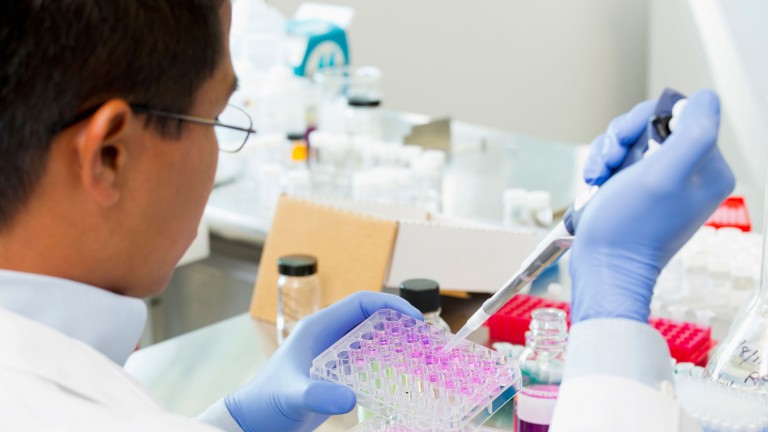The approach is based on two popular AI techniques: generative adversarial networks and reinforcement learning.
The news: A team from AI pharma startup Insilico Medicine, working with researchers at the University of Toronto, took 21 days to create 30,000 designs for molecules that target a protein linked with fibrosis (tissue scarring). They synthesized six of these molecules in the lab and then tested two in cells; the most promising one was tested in mice. The researchers concluded it was potent against the protein and showed “drug-like” qualities. All in all, the process took just 46 days. The research was published in Nature Biotechnology this week.
The method: The system examines previous research and patents for molecules known to work against the drug target, prioritizing new structures that could be synthesized in the lab. It’s similar to what a human chemist might do to seek new therapies—just much faster.
Context: Getting a new drug to market is hugely costly and time consuming: it can take 10 years and cost as much as $2.6 billion, with the vast majority of candidates failing at the testing stage, according to the Tufts Center for the Study of Drug Development. No wonder, then, that there’s so much work under way on using AI to expedite the process. DeepMind is among the companies exploring pharmaceutical research as a potential avenue for its algorithms.
A word of caution: Although the research looks promising, it’s still very much a proof of concept. We’re a long way from AI-designed drugs being created, let alone sold to patients. We explored the issue in this article from our TR10 issue earlier this year.
Sign up here for our daily newsletter The Download to get your dose of the latest must-read news from the world of emerging tech.

